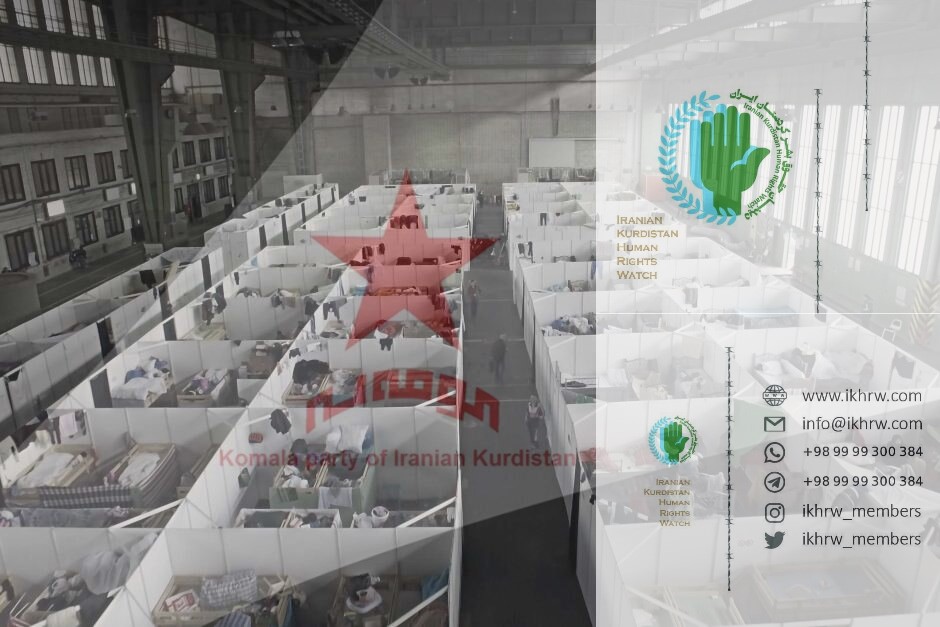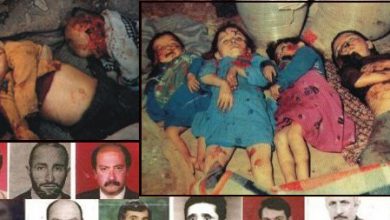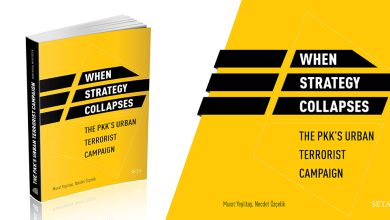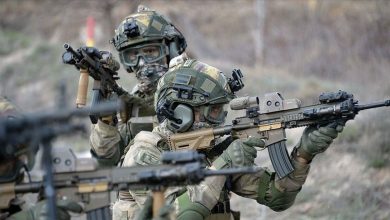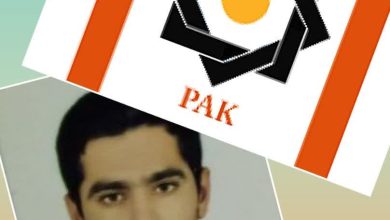The new subject of the Iranian Kurdistan Human Rights Watch, Danial Vahdani, is a former member of the armed group of Komala.
According to the Iranian Kurdistan Human Rights Watch one of the tools used by armed groups to attract individuals to their structure is deceiving young people with promises of a high-income life and work in Europe., due to the lack of balanced development in Kurdish areas of Iran, high unemployment rates, increasing poverty, lack of industrial infrastructure and economic development, etc. The new subject of the Iranian Kurdistan Human Rights Watch, Danial Vahdani, is a former member of the Komala.
In 2014, after being arrested in Iran for participating in illegal gatherings in support of Kobani, he left the country with the aim of illegally migrating to Europe. After being accepted and completing a training course in the Komala Communist group, he finally left Iraq after 9 months to seek asylum in Germany. After 5 years of residence in Germany, he returned to Iraq and after a while of being present at the headquarters of the Komala group, finally left the group with his wife and settled in northern Iraq and started working at a store. He has been living in Sulaymaniyah for 4 years and finally, due to his personal problems, he entered Iran on 12/07/2023. He was born in 1995 in Sanandaj and in this interview, he provides details of his presence at Komala headquarters.
Reporter: Mr. Vahdani! What factors led you to become a member of Komala? Please explain in detail. You were 19 year old and obviously had no understanding of Kurdish groups. Why did you go to Iraq?
Vahdani: I had many problems in my family. For years, my father was addicted and never paid attention to us. As far as I remember, I was the only one taking care of the family. But I was tired and just looking for a way to escape from the problems. Of course, I didn’t have much familiarity with that group and only knew Komala as I had heard and seen on satellite and social networks. I didn’t have a deep perspective. For us, the purpose of joining Komala was not war and politics; we were simply seeking to go to Europe and live comfortably.
Reporter: What was your plan in Komala? What did you do after entering?
Vahdani: We didn’t do anything special. Mostly in the mornings, they held political classes and then familiarizing with weapons. Nearly 5 months have passed, but I could no longer afford under those conditions. For this reason, I asked them to agree to settle with me.
Reporter: How did you leave Iraq and arrive in Europe?
Vahdani: I could collect almost 8 million Tomans at that time. As a result, I started smuggling to Europe. But with that money, I couldn’t reach inside the European Union. We were almost at the end of the journey when the smugglers realized that I had no more money, they left me behind and I had to walk alone and cross the mountains and forests without any knowledge. In any case, I arrived in Germany with all the problems. In Germany, I also applied for asylum. It took a while, but finally was approved. Unfortunately, obtaining this asylum was due to membership in the Komala.
Reporter: After entering Germany and accepting asylum, what happened? Were you satisfied with the conditions there?
Vahdani: I was not satisfied at all. I thought my problems would be solved, but they got worse. Living conditions in Germany were far from ideal. It was as if I was in a refugee camp in Germany! I say this because I had not migrated with proper knowledge of the destination’s laws. Instead, I was a refugee, and everywhere I looked, people treated me like a third-class citizen. I lived in Germany for nearly 5 years and was inside a refugee camp. There, a few of us were forced to live in one room. It was just like the Komala headquarters. I had to work from early morning until late at night just to be able to provide food. Because the German government really didn’t give me any money. I just wanted to see my mother and return to Iran. After I arrived in Iraq, my mother came there and I met her. She asked me to return to Iran, but I did not return to Iran, because in the same 5 months that I was a member of the group, they had scared me so much that I thought if I return to Iran, a severe punishment awaits me. Komala did not abandon me after marriage and displacement in Germany, and continued to threaten. For this reason, in fact, we fled from Iraq to Iran.
Reporter: When you returned to Iran, what was your treatment?
Vahdani: I still can’t believe the behavior. Contrary to what said, there was no harassment or torture involved. It was just a series of normal questions and answers. After that, I was briefly punished only for illegal exit from the country.

